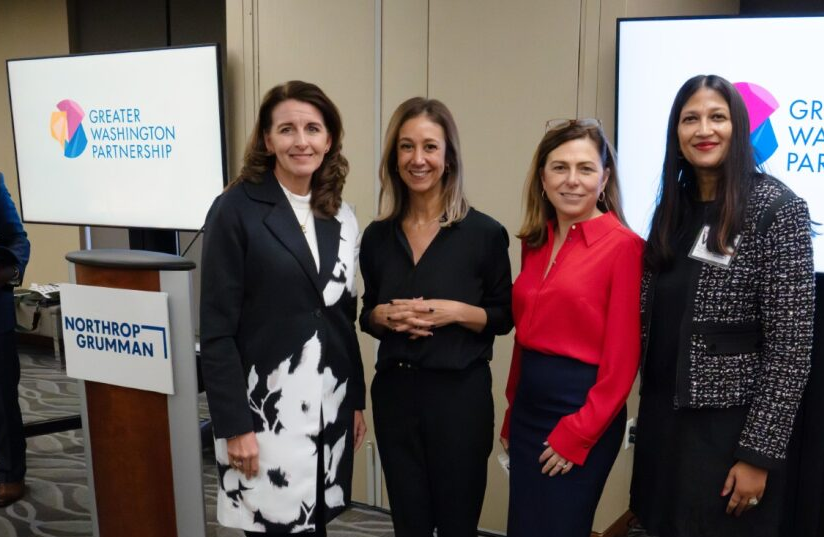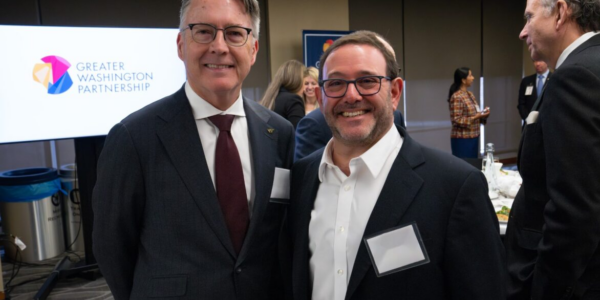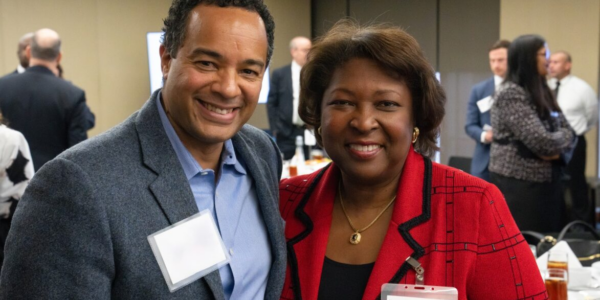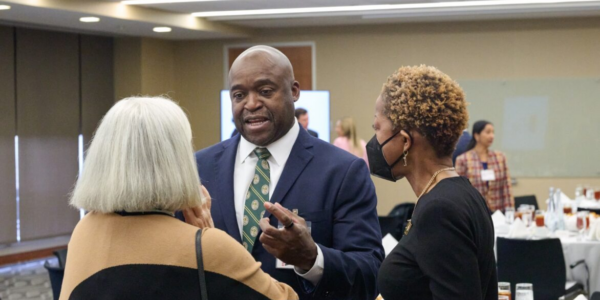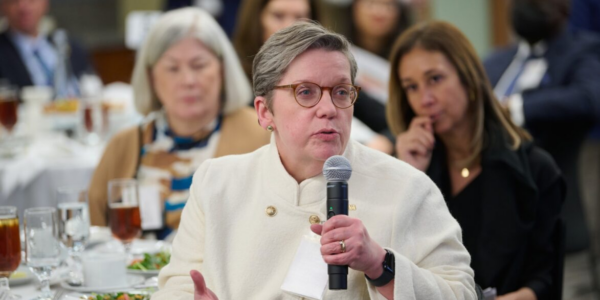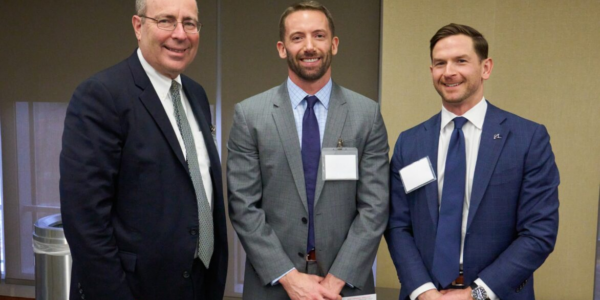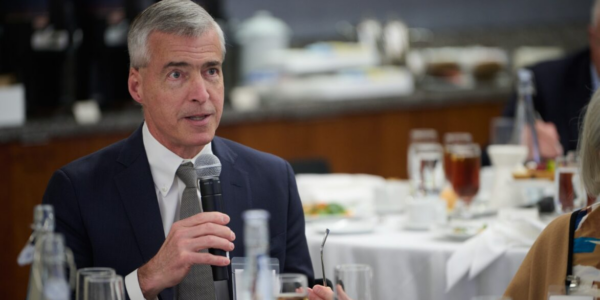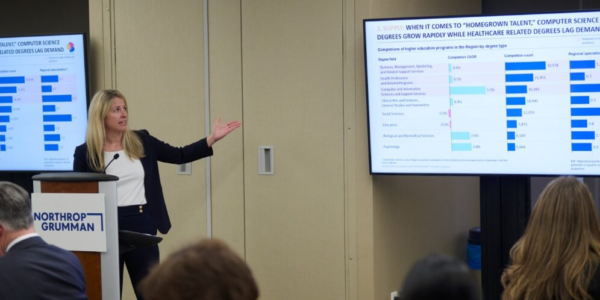By Emily West, Vice President, Skills, Talent & Future of Work
On February 27, Greater Washington Partnership hosted the annual Collaborative of Leaders in Academia and Business (CoLAB) Principals Luncheon at Northrop Grumman’s offices in Falls Church. CoLAB is Greater Washington Partnership’s coalition of board partner companies and regional postsecondary institutions who convene and collaborate on talent development in the region from Baltimore to Richmond. This year’s event brought together over 35 leaders, including presidents from 4-year and community colleges and Partnership board members, for a cross-sector discussion about how to build and strengthen regional talent pipelines.
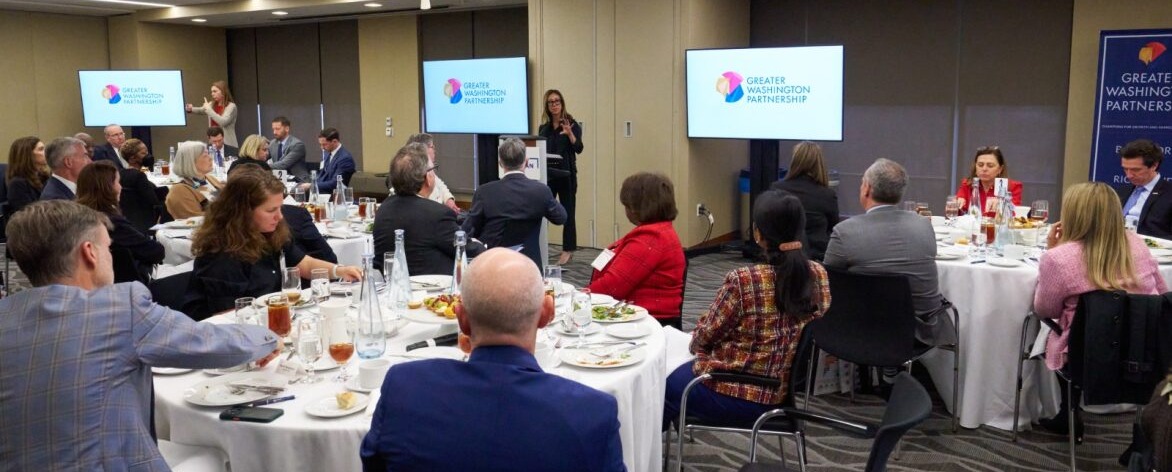
Partnership Board Chair and Northrop Grumman CEO Kathy Warden welcomed attendees and shared details on our region’s unique positioning in talent development, and Partnership CEO Kathy Hollinger provided background information about CoLAB and our collective goal to create cross-sector talent solutions. Then McKinsey Senior Partner Nora Gardner and Partner Brooke Weddle shared labor market data that highlighted bright spots in the region’s talent ecosystem and showed where there’s opportunity to work together to close talent gaps.
Key insights from McKinsey:
- While the region is producing a higher-than-average number of degrees in high-demand industries such as tech, there is still a gap between the number of graduates and number of roles open in the region’s highest-demand industries.
- This gap is particularly stark in the health care industry, where demand is increasing at a much higher rate than degree completion.
- The region from Baltimore to Richmond is an importer of tech talent, meaning more tech employees are coming to the region to work rather than leaving to work elsewhere.
- The region retains over 40% of its graduates (inclusive of intra-region mobility between MSAs), but this retention rate is lower than that of similarly sized MSAs nationwide.
- This may be because higher wages in the region are offset by the relatively high cost of living.
You can find additional analysis on the State of the Regional Labor Market here.
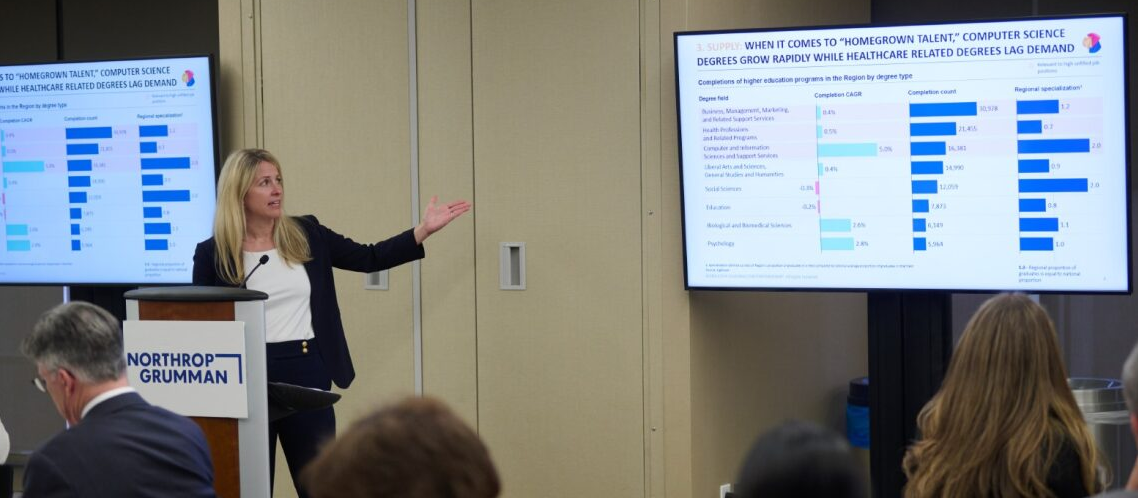
Following a presentation and discussion of this data, Kathy Hollinger shared information about the Partnership’s Employer Signaling System (ESS) our systematic tool that combines labor market information with insights directly from employers to paint a comprehensive overview of the region’s workforce needs. To learn more about the ESS, check out our new video explainer below:
The lunch closed with a moderated discussion that surfaced examples of effective employer-educator partnerships and employer-aligned academic programs in the region. A few examples of strong partnerships include:
- The ADVANCE program between Northern Virginia Community College and George Mason University, a transfer initiative that allows students to access bachelor’s degrees on time and cost-effectively
- Trinity Washington’s Data Analytics Minor, created using the ESS as a guide, meaning students enrolled in this course of study are gaining skills verified as in-demand from regional employees
- Exelon’s support of national HBCUs, including Bowie State University, where Exelon provides scholarship funds to students in STEM
- George Mason’s partnership with Maximus, through which Mason students can access special opportunities to both learn about and pursue Maximus internships and careers
- Virginia Tech and Northrop Grumman’s partnership, which includes an initiative that allows Northrop Grumman employees to take Virginia Tech graduate courses free of charge
The Partnership will continue to spotlight innovative collaboration and support the development of new, cross-sector initiatives with our employers and educators. To learn more about the Partnership’s Skills & Talent work, please email Emily West at [email protected].
